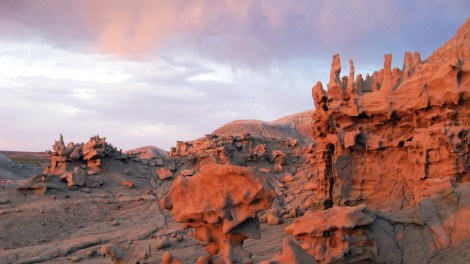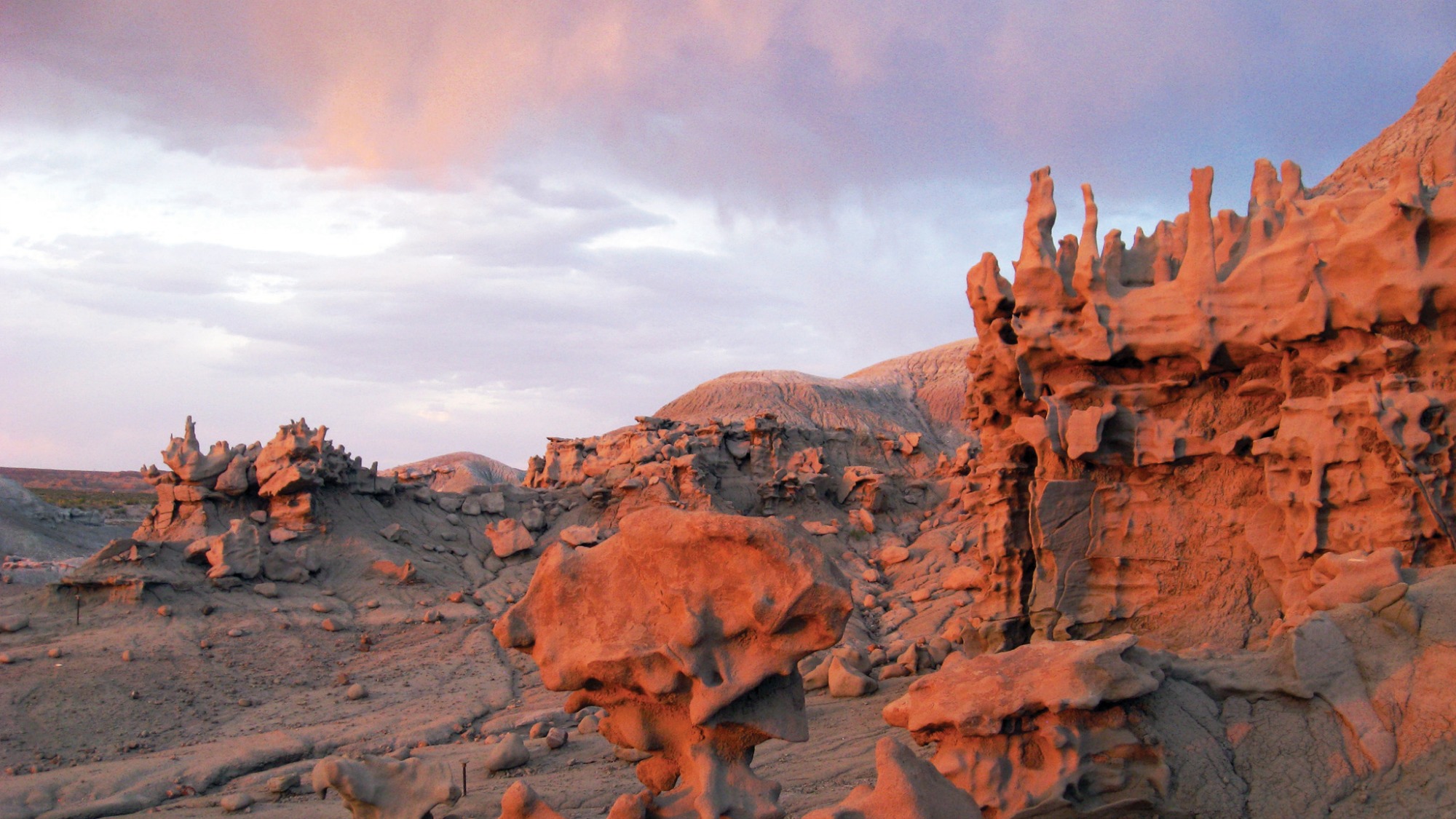
Jim Davis / Utah Geological SurveyUtah’s Uinta Basin before shale mining begins.
As if we didn’t already have enough filthy, inefficient, unconventional oil-extraction techniques in use in North America, here’s one more: oil shale mining.
A Utah company has received the go-ahead from the state’s water-quality department to begin operating the first commercial oil shale mine in North America.
Oil shale is not to be confused with shale oil, or shale gas, or oil sands. So what the hell is it? “Contrary to its name,” explains Western Resource Advocates, “oil shale contains no petroleum but is instead a dense rock that has a waxy substance called kerogen tightly bound within it. When kerogen is heated to high temperatures, it liquefies, producing compounds that can eventually be refined into synthetic petroleum products.”
Companies have mulled oil shale mining in the Mountain States for more than a century, but previous efforts have foundered as energy prices have been too low to justify the large expense associated with the complicated extraction process. Now Red Leaf Resources is ready to give oil shale another crack. Here’s more from The Salt Lake Tribune:
Regulators on Friday issued a groundwater permit to Red Leaf Resources, a Utah company planning to develop a shale mine and below-grade ovens to heat ore mined from state land in the Uinta Basin. …
Kerogen-bearing shale exists in vast abundance under Utah, Colorado and Wyoming, but no one has figured out how to extract oil from it in commercial amounts. With 600 million barrels available under its Utah leasehold, Red Leaf hopes to be the first.
Its initial, small-scale demonstration project “will produce more than 300,000 barrels of oil and prove our clean oil shale technology works on a large scale,” said CEO Adolph Lechtenberger in a news release. …
In Red Leaf’s trademarked EcoShale process, operators dig pits lined with bentonite and clay, fill them with ore and heat it to 725 degrees for a few months.
In-situ, high-temperature petroleum refining in stunning Utah landscapes sounds like a dreadful idea. But water quality regulators say there isn’t enough water in the parched area to give them any cause to worry. “We based our permit decision on the absence of water in the extraction process, the lack of an aquifer and low permeability of the rocks underlying the test site,” one official told the newspaper.
Environmentalists, however, are freaking out. “They take the skin off the planet and are not putting it back,” said John Weisheit of the group Living Rivers. “They are destroying the watershed, the near-surface aquifers.” His group has gone to court to hold up approvals of plans to mine tar-sands oil nearby, but hasn’t been able to block this oil shale project.
We’ll be sure to let you know when this all goes to shit.



